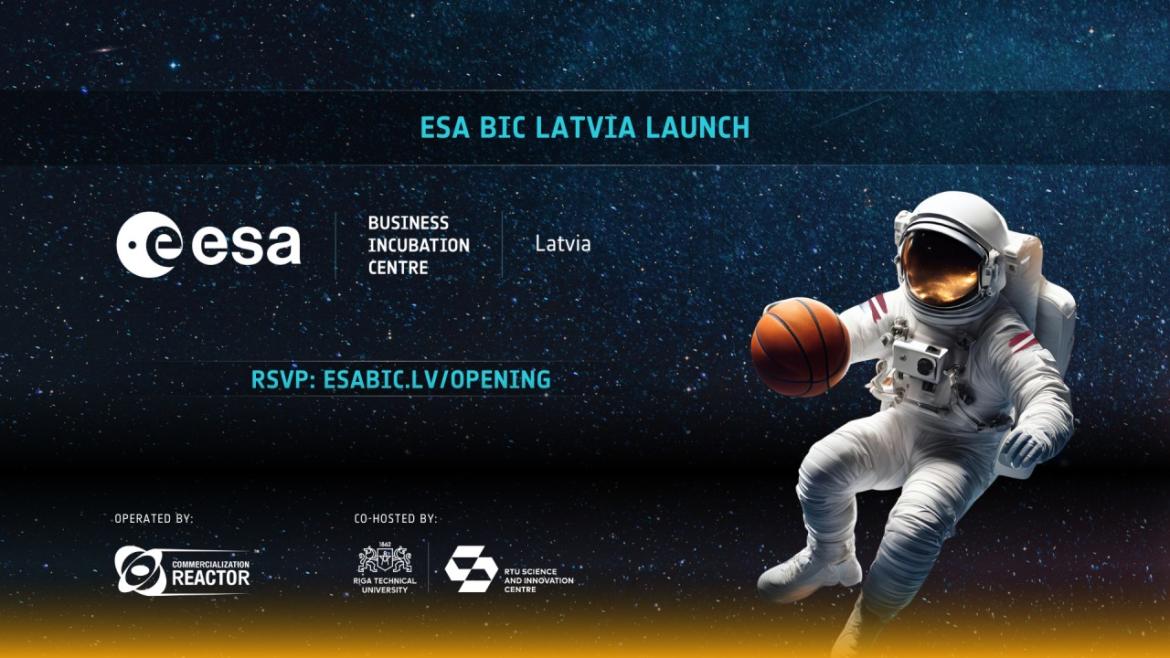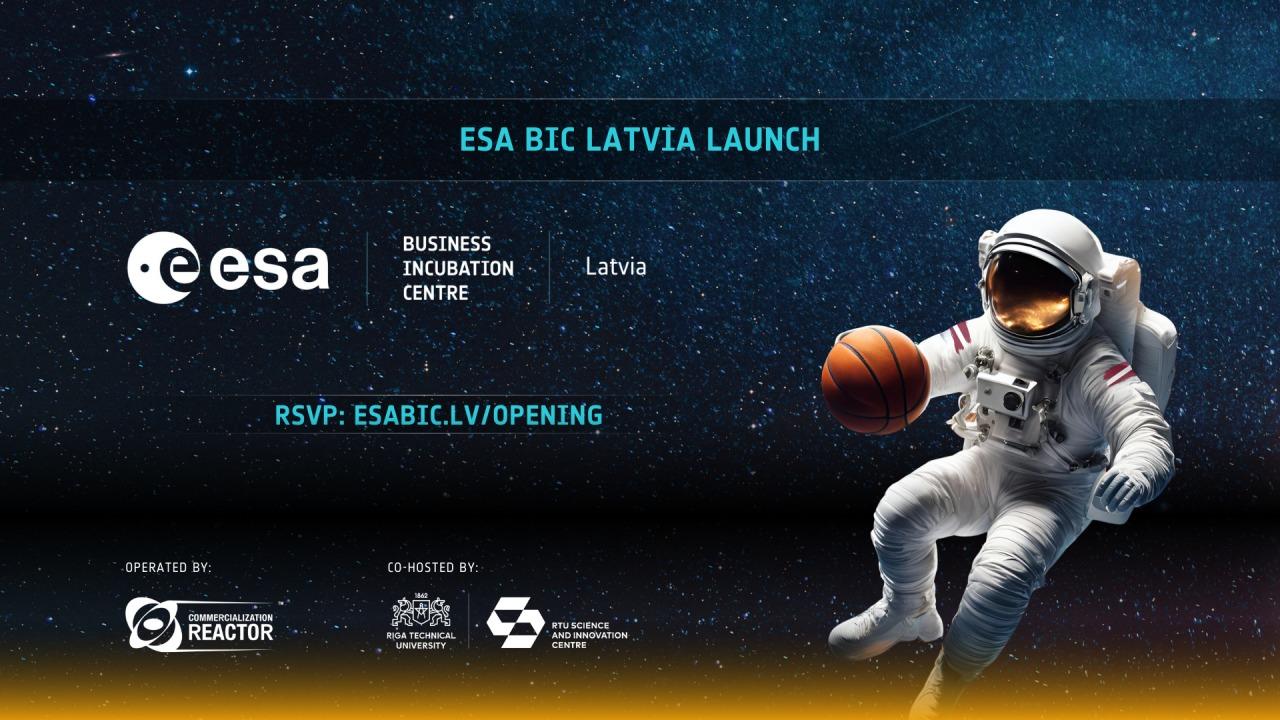On November 13, 2024, at 4:00 pm, the European Space Agency Business Incubation Centre in Latvia (ESA BIC Latvia) will be inaugurated at the Science and Innovation Centre of Riga Technical University (RTU). Luca del Monte, the Head of ESA’s Commercialisation Department, will also attend the launch event.
Latvia will join an influential network of 32 ESA Business Incubation Centres across 22 European countries, with more than 1,700 supported start-ups during the past two decades.
‘Space innovation has no boundaries, and the ESA BIC Latvia launch reflects our commitment to fostering a thriving start-up ecosystem across Europe. We aim for Latvian entrepreneurs to contribute to the global space economy, supported by ESA resources and expertise’, says Luca del Monte.
The establishment of ‘ESA BIC Latvia’ has emerged from Latvia’s status as an ESA Associate Member State, and this initiative aligns with the goals of the Latvian Space Strategy developed by the Ministry of Education and Science and the Ministry of Economics. The incubator will be managed by ‘Commercialization Reactor’, which won a public competition to lead its implementation in Latvia. The incubation centre’s opening represents successful collaboration among Latvian ministries, the space industry, research institutions, and ESA.
The opening event invites stakeholders in the space industry, including entrepreneurs, space enthusiasts, scientists, marketing experts, data analysts, lawyers, and investors, to network with Latvian and European space ecosystem experts and learn more about joining the incubator and Latvia’s future opportunities in the field. Attendees will also have the opportunity to join a panel discussion featuring leaders of ESA Business Incubation Centres from other Baltic states and ESA commercialisation project managers. The event will be held in English at RTU’s Science and Innovation Centre, (Ķīpsalas 6A, Riga). Registration is required to attend: https://esabic.lv/opening.

About ESA BIC Latvia
Over the next five years, ESA BIC Latvia plans to support 12-18 start-ups by providing financial support, two years of business coaching, training, technical assistance, access to space data, and legal consultations.
‘With the launch of ESA BIC Latvia, Latvia will join the elite ranks of the European space ecosystem. This step provides our start-ups with access to a world-class platform for growth and innovation’, emphasizes the founder and CEO of Commercialization Reactor Nikolay Adamovitch.
All ESA BIC Latvia services will be free, enabling entrepreneurs to focus on innovation and business growth. The centre aims to foster the development of new technologies that either contribute to the space economy or improve the day-to-day operations of the space industry. ESA BIC Latvia objectives include supporting space-related start-ups, creating new jobs, and developing science-driven businesses in Latvia. The incubation centre has already established partnerships with 24 Latvian organizations, including RTU, the University of Latvia’s Institute of Solid State Physics, and Ventspils University of Applied Sciences.
Lev Lapkis, Head of ESA BIC Latvia, explains, ‘Our mission is to build a sustainable space start-up community, positioning Latvia as a science-based economy with a focus on the space industry.’
Follow ESA BIC Latvia on social media for the latest updates: Facebook, X, and LinkedIn (@ESA BIC Latvia). During the opening ceremony, the ESA BIC Latvia website will be launched (www.esabic.lv).
About Latvia’s Collaboration with ESA
Developing and implementing space policy is a priority for the Ministry of Education and Science of the Republic of Latvia. The Latvian Space Strategy 2021-2027 outlines the industry’s future goals, and collaboration with ESA is essential for current and future sector growth. Since 2015, Latvia has invested regularly in ESA programmes, resulting in over 100 successful projects benefiting more than 30 Latvian companies and research institutions. Thanks to Latvia’s status as an ESA Associate Member State since 2020, Latvian companies and institutions can participate in world-class space projects, collaborate with major industry players, and gain expertise for effective integration into the European space sector.
